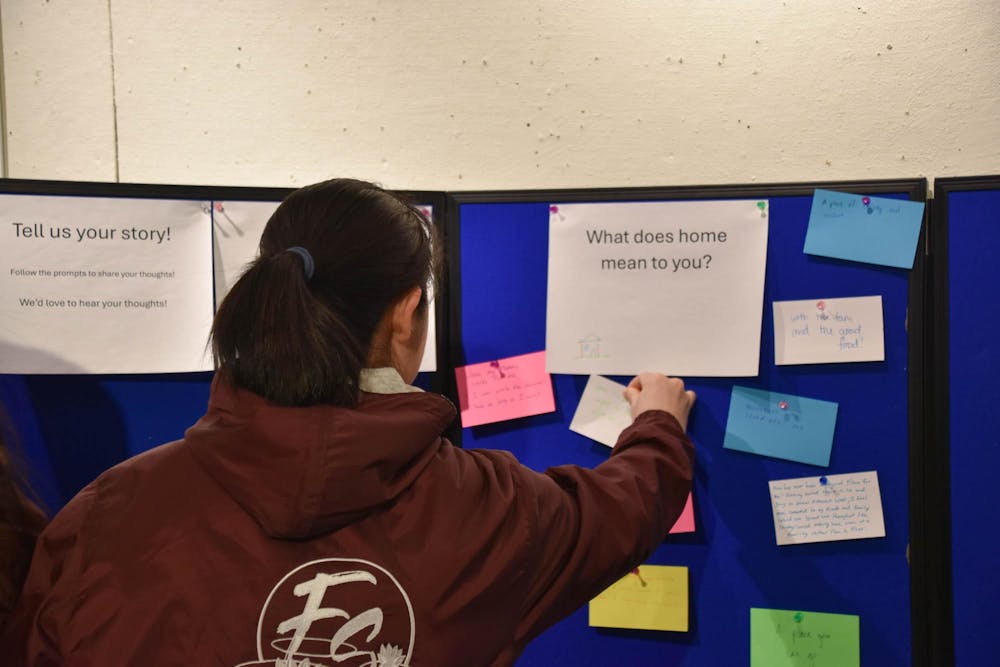Faculty, students and alumni mingled throughout the Student Union Art Gallery on Saturday morning, celebrating the opening of the Southern Mix exhibit.
Southern Mix is a project at UNC that partners with the Southern Oral History Program, Carolina Asia Center and the Asian American Center. It was co-founded in 2017 by alumna Anna-Rhesa Versola with the goal to share the stories of Asian Americans in the South through oral histories.
The exhibit at the gallery highlights some of the stories of individuals who participated in recording their oral histories. Photographs of the participants line the walls, accompanied with snippets from their interviews and QR codes to sound bites from their oral history recordings.
Director of the Asian American Center and English professor Heidi Kim said that the exhibit was an effort from the AAC to get oral histories back into the community and to provide pathways for students to get involved with the work.
Kim said the exhibit was first displayed at the AAC, before it traveled throughout the state to various schools and public libraries. Now, it will be displayed at the Union until Jan. 24, after which it will move to more off-campus locations.
“It’s very important when you’re doing oral history work that it not just be extracting information from the community,” Kim said. “It should also give back to the community.”
Sophie Tô, a recent PhD graduate from Gillings School of Global Public Health, was first introduced to the use of oral histories in health research through their advisor.
“Oral history, I think I was drawn to because, at its best — it’s not a perfect method, just like anything else — I felt like it really humanizes people and their relationships,” Tô said.
Being a health researcher, Tô said she likes that oral histories are an approach which highlight not only individual experiences, but also the context of those individuals within their larger community.




